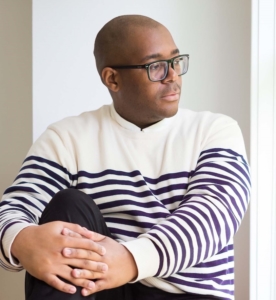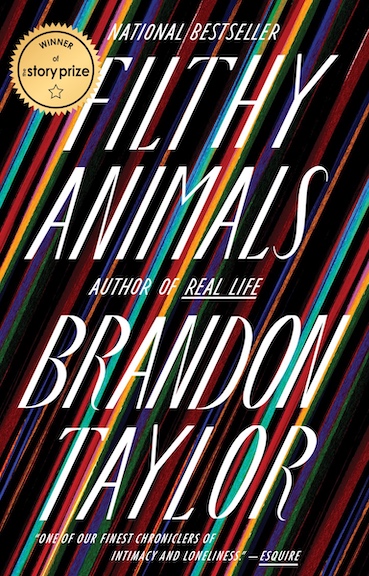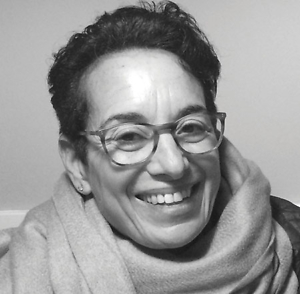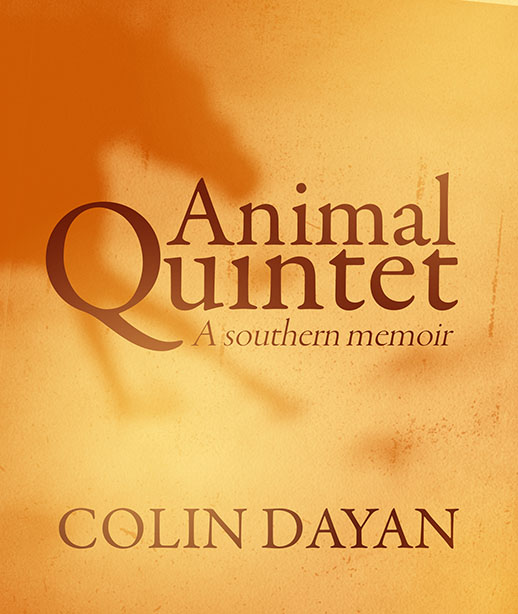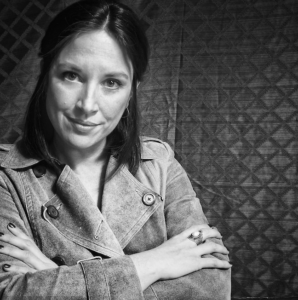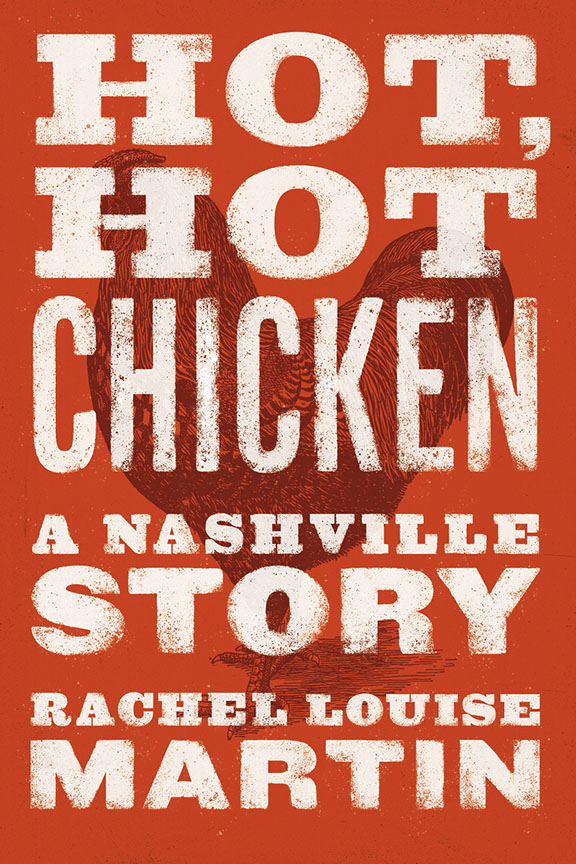Living by the Grace of Inspiration
Richard Tillinghast talks with Chapter 16 about poetry, politics, and being Southern (or not)
In Damaged Grandeur, his 1995 book about Robert Lowell, poet Richard Tillinghast noted that the vagaries of academic employment, with its frequent moves from one short-term post to the next, “turns many writers into rootless nomads detached from their native communities.” Born and raised in Memphis, Tillinghast has been something of an academic nomad himself, with a C.V. that includes teaching jobs at Harvard, Sewanee, the University of California at Berkeley, and the University of Michigan. He’s also a dedicated traveler who has journeyed as far afield as India and Turkey, and he recently returned to the United States after a lengthy sojourn in Ireland.
“Rootless,” however, is an adjective that doesn’t seem to apply to Tillinghast, who has always acknowledged the formative influence of his Southern upbringing. In a 1997 autobiographical essay, he confessed “to getting a lump in my throat when I hear ‘Dixie,’” but he protested segregation during his undergraduate days in Sewanee and felt the need to leave the region for a more liberal climate. Nevertheless, he has always maintained close ties to Sewanee and plans to take up residence there in September.
Tillinghast published his first book of poetry, Sleep Watch, in 1969. Ten subsequent volumes include Our Flag Was Still There (which contains his long narrative poem “Sewanee in Ruins”), The Stonecutter’s Hand, The New Life, and most recently, Selected Poems, a survey of four decades of his work. Tillinghast’s poems employ a range of styles, although his early mastery of meter and rhyme has given even his free verse an obvious musicality. Irish poet Eamon Grennan has described Tillinghast’s poetry as a “testament to a civilized sensibility taking his own and the world’s pulse—with some humor and some melancholy.” That assessment is borne out in the breadth of Tillinghast’s themes and concerns. The 1997 poem “His Days,” like so much of Tillinghast’s work, captures the unspoken pain and longing we all experience:
But when on some grimy market town’s main street
He heard a child, eyes widening in wonder,
Call out “Daddy!,” reaching for his father,
It cut him like the crack of leather.
Then, it seemed, the pain was complete.
The water was wide, and he could not swim over.
Tillinghast can speak just as effectively to social and political concerns. His 2010 poem “What is Not Allowed” is an ironic look at the cruelty of Israel’s blockade of Gaza.
Pumpkins and carrots you may have,
but no delicacies,
no cherries, no pomegranates, no watermelon, no onions,
no chocolate.
We have a list of three dozen items that are allowed,
but we are not obliged to disclose its contents.
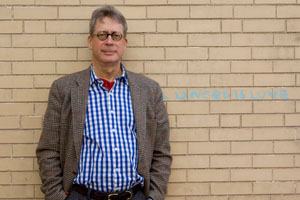 In addition to poetry, Tillinghast has written a large body of criticism. He reviewed new poetry for The New York Times Book Review for twenty years, and has also written for the The New Criterion and The Wall Street Journal. In addition to his book on Lowell—an early mentor—Tillinghast has published a volume of criticism, Poetry and What is Real; and Finding Ireland, a reflection on Irish literature and culture. He has also collaborated with his daughter, Julia Clare Tillinghast, on translating the work of Turkish poet Edip Cansever. A collection of their translations, Dirty August, was published in 2009.
In addition to poetry, Tillinghast has written a large body of criticism. He reviewed new poetry for The New York Times Book Review for twenty years, and has also written for the The New Criterion and The Wall Street Journal. In addition to his book on Lowell—an early mentor—Tillinghast has published a volume of criticism, Poetry and What is Real; and Finding Ireland, a reflection on Irish literature and culture. He has also collaborated with his daughter, Julia Clare Tillinghast, on translating the work of Turkish poet Edip Cansever. A collection of their translations, Dirty August, was published in 2009.
Tillinghast will give a reading on September 27 at the University of Memphis, followed by an interview on September 28. He will also appear at the Southern Festival of Books in Nashville, October 14-16. He answered questions from Chapter 16 by email.
Chapter 16: What connection, if any, is there between your work as a writer and your decision to live in Ireland? How does the place you inhabit shape your writing?
Tillinghast: I am responding to you from a borrowed house in Berkeley. At the time you posed your questions, I was still living in Ireland, where I have spent a little more than a tenth of my adult life, but now I have returned to the U.S. The places I inhabit have always informed my writing powerfully. In Ireland, for example, I have always found it quite natural to write in rhyme and meter, though I couldn’t say just why. No doubt that has something to do with the poetic traditions of the place, though for me the forms my poetry takes are always arrived at instinctively or intuitively. I associate California with free verse, and I think the reasons for that would be obvious to most people, whether they had ever lived here or not. The Native American notion that one is not simply an individual, but rather someone in a certain position on this earth has always made a lot of sense to me.
Chapter 16: Your more recent poems seem to speak very much through the concrete world, the immediate world of ordinary objects. Do you think the focus of your poetry is different—more narrow or precise—than it once was?
Tillinghast: My poems, I would have thought, have always spoken through the concrete world. In that sense I would regard myself as being very much a poet of my era, following William Carlos Williams’s dictum, “No ideas but in things” and Ezra Pound’s advice to poets: “Go in fear of abstractions.” My mentor at Sewanee, Andrew Lytle, was always dead set against abstractions, and no doubt that rubbed off on me too. The poets who have had an influence on me have never been “idea” poets, but rather merchants of the actual, such as Robert Frost, John Crowe Ransom, and Robert Lowell. I suppose Yeats’s poetry has ideas in it, but it is always grounded.
Chapter 16: You collaborated with your daughter, Julia Clare Tillinghast, on translating the work of the Turkish poet Edip Cansever. Can you describe how the two of you worked together, and talk about the primary challenges of translating poetry?
Tillinghast: Some of the poems we each of us worked on individually. At one point, when my grandson Hamza was a baby, he slept a lot, and Julia and I are were both in Ann Arbor at the same time—Hamza was born there—so we had the luxury of being able to sit in the same room and go back and forth on the translations, look up words in the dictionary, talk about phrasing, and so on. Most of the time, however, she was in Virginia and I was in Ireland, and we emailed back and forth about poems we were working on.
Almost no one would agree with me, but I wonder how people can say they are translating poetry when they don’t read the language the poems are in. So many “translators” work from a literal trot, or they know someone who knows the language. I don’t see how you can truly know a poem unless you can read it in the original. Turkish is a difficult language, and I feel to an extent that all the hard work involved in learning it was part of what gave us the right to be translators. The challenge is to come up with a translation that on the one hand reflects the original in a very faithful way and that on the other hand exists independently as a poem in English.
I might note that some poems, some words and phrases, just don’t seem capable of being translated from a particular language into another. Right at this moment I am looking at an Italian translation of A.E. Housman’s book, A Shropshire Lad, on a book shelf opposite me. The title in Italian? Un Ragazzo dello Shropshire! I don’t think anyone who knows both languages could do anything but laugh at that title. Yet it is not necessarily the Italian translator’s fault. It’s just that Italian happens to have a rather silly-sounding word to express the idea of “lad.”
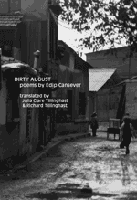 Chapter 16: How American and how Southern are you? Does national or regional identity matter to you at all as a writer?
Chapter 16: How American and how Southern are you? Does national or regional identity matter to you at all as a writer?
Tillinghast: That is a good question, and very hard to answer. I think I am very American and very Southern, and at the same time, not American and not Southern at all. I am certainly more Southern, however, than I am American. After 9/11, I—and no doubt many others— became thoroughly sick of the song, which one was frequently called upon to sing in places like churches and synagogues, “God Bless America.” To me, pardon me, the whole idea is repugnant. Why should God bless America any more than anywhere else in the world? It’s insulting to any idea of our common humanity. We all need all the help we can get. I like the big skies, the wide open spaces, the freedom from convention that define being American. Tradition, rootedness, orneriness, obstinacy, pride, attachment to family—all those Southern qualities—become more a part of me every day I am alive. And yet I have been told I am very English. I suppose the self is a hybrid something.
On the other hand I love the haiku by Issa that goes, in Robert Hass’s version:
These sea slugs,
they just don’t seem
Japanese.
I am told Issa wrote this in response to a call for patriotic poems. Coincidentally, Hass does not, to my knowledge, know Japanese—which contradicts what I said above about translation! So much for consistency.
Chapter 16: There is overt political commentary in some of your recent poems, such as “What is Not Allowed.” Do you feel an obligation to engage social and political realities in your work? Is that part of a poet’s job?
Tillinghast: It’s part of a poet’s job if he or she thinks it is. And at different times during one’s career one feels the urge to write poems that can justifiably be called political. During the past decade I have become fed-up with the unconvincing patriotic rhetoric that fills the airwaves in the U.S. We seem to have forgotten Samuel Johnson’s remark, “Patriotism is the last refuge of a scoundrel.” And why we, who as a nation destroyed Native American civilizations, should sit back idly and allow Israel to do the same thing to the native residents of Palestine, who have been there for well over a thousand years, when many of those who claim the right to the land as Jews are actually natives of Brooklyn, or Ukraine, or somewhere else, escapes me. In fact we as Americans are not sitting back idly—we are providing the money, the tanks, the missiles, the jets that enforce this outrage, the bulldozers that demolish ancestral houses and olive trees that are in some cases hundreds of years old. These matters are addressed in the poem you cite, and also in another recent one, “And And And.”
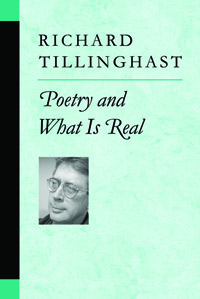 Chapter 16: In an interview for How a Poem Happens, you said that inspiration “is a reality. I live by it.” Has that always been the case for you? How have you cultivated your ability to receive inspiration?
Chapter 16: In an interview for How a Poem Happens, you said that inspiration “is a reality. I live by it.” Has that always been the case for you? How have you cultivated your ability to receive inspiration?
Tillinghast: The question I was asked was, did I believe in inspiration. The point of my answer was that if one experiences something, then there is no question of believing or not believing. I expect that anyone who practices an art, whether it be writing poetry or songs, painting, writing music, and so on, knows that we live by the grace of inspiration. Either it comes or it does not come. Having said that, though, it is true that one can cultivate the ability to receive inspiration. For me this involves having a notebook at hand and writing down each little scrap that might grow into a poem. The poems are out there—or inside of us—looking for expression. I also find that cultivating the flow of writing is the surest way to make it happen.
Chapter 16: In the same interview you spoke of Yeats as “a living presence.” Can you name some other writers or artists who have a similar importance for you, and explain a little about how their work affects your own?
Tillinghast: For me it’s more a matter of individual works by favorite artists. “Church Going” by Philip Larkin. I love the fully realized masterpiece of this poem, the stanzas like great incised slabs of stone, like those in Yeats’s “In Memory of Major Robert Gregory.” “Over 1,000 Illustrations and a Complete Concordance,” “Filling Station,” “At the Fish-houses,” “The Moose,” “Gregorio Valdes” and a few other prose pieces, by Elizabeth Bishop. So many wonderful details, such adeptness in summing up a lifetime’s experience. “Hope Is the Thing with Feathers,” “I Started Early, Took My Dog,” by Emily Dickinson, for their quirkiness and the rightness of the phrasing. Most of Life Studies by Robert Lowell, for his ability to capture the mood of an era, his humor, his eye and sense of color. Hamlet, King Lear, A Midsummer Night’s Dream, for the matchless poetry of the lines. “Those Winter Sundays” by Robert Hayden. “Birches,” “Directive,” “The Death of the Hired Man,” “Spring Pools,” “Mending Wall,” and others by Robert Frost. Frost was the master of masters. What assurance, what balance, what control of the line. “The Listeners” by Walter de la Mare. A haunting poem. I love ghost stories. Several stories by John Cheever. A great prose poet with heart-breaking pathos and stylishness. The Bear and Absalom Absalom! by Faulkner. These books go right to the depths. “The Old Forest” and several other stories by my friend and fellow Memphian, Peter Taylor. I’m writing these down off the top of my head and not checking them for accuracy, by the way. War and Peace. Parts of The Waste Land. Bob Dylan’s “Shelter from the Storm” and “Tangled Up in Blue” for his evocation of the Muse and his way of singing about the experience of our generation. He and I are almost the same age.
Chapter 16: You’ve written a great deal of criticism over the years. What’s the primary responsibility of a critic? What are the pitfalls of reviewing?
Tillinghast: I no longer review any poetry that I don’t like, though I do review nonfiction and fiction in areas that interest me. Book reviewing is a young man’s game. It’s too easy to make enemies, and I certainly made some when I used to review new poetry regularly for The New York Times. I do think book reviewing is an honorable endeavor, and I have great admiration for people like Cyril Connolly, William Pritchard, Randall Jarrell.
Chapter 16: You’re a musician as well as a writer. How do those two pursuits fuel each other?
Tillinghast: I play the guitar and sing some every day, but I am strictly an amateur. I wish I could play better. I love songs. Whenever poems stop being songs they lose something—though not all those I’ve singled out above are songlike. When there is no musicality in poetry, then something vital is lost.
Richard Tillinghast will give a reading on September 27 at the University of Memphis, followed by an interview on September 28. He will also appear at the Southern Festival of Books in Nashville, October 14-16.
